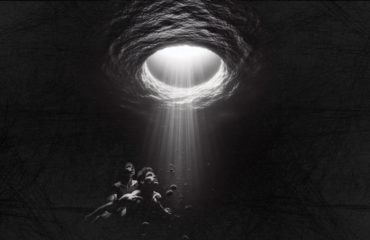
Overview:
In this hypothesis, the world operates without organized religion, without saviors, and without the belief in salvation or an afterlife. While the concept of a Creator or higher power exists, the focus shifts entirely to the material and observable aspects of existence by way of the Spiritual. The absence of traditional religious doctrines profoundly affects culture, ethics, community structures, and individual psychology.
Societal Structure
- Ethics and Morality:
- Morality becomes more humanistic and utilitarian, focusing on the well-being and happiness of individuals and societies. Ethical frameworks are developed through reason, empathy, and consensus rather than religious doctrines.
- Laws and social norms are based on practical considerations of harm and benefit, promoting cooperation and mutual respect.
- Education:
- Education emphasizes critical thinking, scientific inquiry, and philosophical exploration. Curriculums include ethics, civic responsibility, and environmental stewardship.
- Knowledge is pursued for its own sake and for the improvement of human life, without the constraints of religious orthodoxy.
- Community and Social Support:
- Communities are formed around shared interests, values, and goals rather than religious affiliation. Social support networks are based on common humanity and the intrinsic value of helping others.
- Rituals and traditions may still exist but are secular, celebrating important life events and communal milestones without religious overtones.
Individual Psychology
- Sense of Purpose:
- Individuals derive meaning and purpose from personal achievements, relationships, and contributions to society. The idea of self-actualization and living a fulfilled life becomes central.
- The absence of belief in an afterlife leads to a focus on making the most of the present life, fostering a sense of urgency to create positive change and enjoy experiences.
- Dealing with Mortality:
- Acceptance of mortality is approached through philosophical and existential frameworks. Practices like mindfulness, meditation, and psychological resilience are emphasized.
- Art, literature, and philosophy play significant roles in helping individuals grapple with the concepts of life, death, and legacy.
- Spirituality and Connection:
- Spirituality is redefined as a sense of awe and wonder about the universe, the natural world, and the mysteries of existence. People may find spiritual fulfillment in nature, creativity, and deep interpersonal connections.
- Practices like meditation, yoga, and mindfulness become widespread, offering pathways to inner peace and self-discovery without religious connotations.
Cultural Evolution
- Art and Expression:
- Art, music, and literature explore human experiences, emotions, and the natural world without religious themes. Creativity is driven by the desire to express and understand the human condition.
- Festivals and celebrations highlight cultural heritage, seasonal changes, and communal achievements, fostering a sense of unity and shared identity.
- Science and Technology:
- Science and technology thrive, free from religious opposition. Research and innovation are pursued with vigor, aiming to improve quality of life, health, and understanding of the universe.
- Ethical considerations in science and technology are carefully deliberated through public discourse and philosophical inquiry.
Environmental and Ecological Awareness
- Earth as an Ecosystem:
- With a focus on Earth as a complex and interconnected ecosystem, there is a heightened awareness of environmental stewardship and sustainability. The predator-prey dynamic is understood and respected as a natural part of life.
- Conservation efforts, renewable energy, and sustainable living practices are prioritized, driven by the understanding that humanity must coexist harmoniously with nature.
- Global Cooperation:
- Global challenges such as climate change, biodiversity loss, and resource management are addressed through international cooperation and shared scientific knowledge. The absence of religious conflict reduces barriers to collective action.
- Policies and initiatives are guided by a long-term vision of planetary health and the well-being of all life forms.
Conclusion
In this scenario, the world without religion, saviors, and the belief in salvation fosters a society grounded in reason, empathy, and a deep appreciation for life and the natural world. Individuals find purpose and meaning through personal growth, relationships, and contributions to the common good. While the absence of traditional religious structures transforms many aspects of life, the enduring presence of a Creator or higher power offers a sense of wonder and connection to the broader cosmos.




Excellent content!!! Dr Dani recommended your page.
Glad I found someone else who also uses multiple birthchart technologies as well.
Really shows a broader scope + confirmation on why we are here